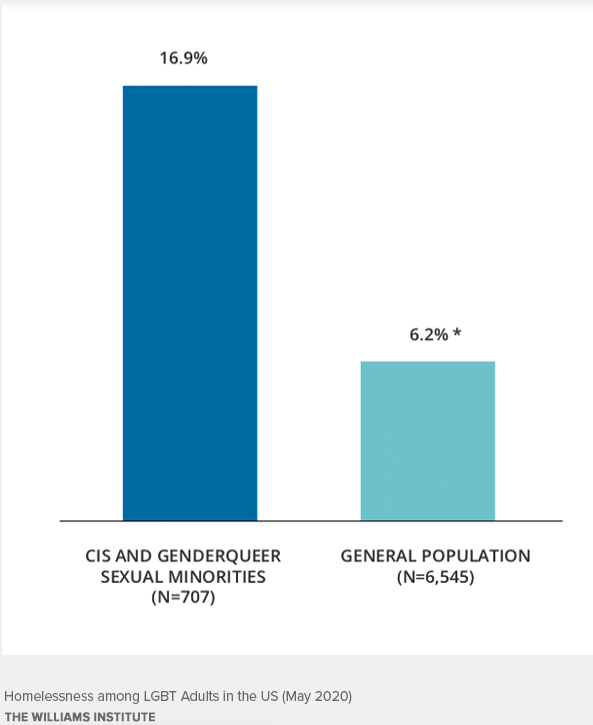On June 28, 1969, Marsha P. Johnson, Sylvia Rivera, and their fellow members of the gay liberation movement struck back against systemic injustice at the Stonewall Inn on Christopher Street in NYC. Thanks to their community-building efforts and undeniable bravery, we celebrate Pride Month every June. If you’re a member of the LGBTQ+ community, you likely understand how healing and validating Pride can be. But good landlords validate and uplift their LGBTQ+ tenants all year round by becoming an ally in both word and action.
Did You Know?
LGBTQ+ landlords may be able to certify their property management business with the National LGBT Chamber of Commerce and U.S. Small Business Administration (SBA), which unlocks networking opportunities and business-building resources.
What is an Ally?
According to Harvard Business Review, “allyship [is] a strategic mechanism used by individuals to become collaborators, accomplices, and coconspirators who fight injustice and promote equity… through supportive personal relationships and public acts of sponsorship and advocacy.”
In other words, an ally is someone outside of a marginalized group who seeks to support, uplift, and empower members of the marginalized group in their efforts to secure equity. It’s not enough to call yourself an ally; you must act in good faith, remain open to learning from members of the marginalized community, and examine your internal biases so that you can help those who need you the most.
After all, housing insecurity and homelessness are shockingly common among members of the LGBTQ+ community. In fact, LGBTQ+ youth are 120% more likely to experience homelessness than their straight peers, and 17% of LGBTQ+ adults have experienced homelessness.
Lifetime Experience With Homelessness Among Sexual Minorities vs. the General Adult Population
Beyond the fact that sticking up for marginalized groups is the right thing to do, Fair Housing laws dictate that you cannot discriminate against members of the LGBTQ+ community. As of 2021, prospective tenants and current renters alike can contact the Department of Housing and Urban Development (HUD) to report housing discrimination related to their sexuality.
“Housing discrimination on the basis of sexual orientation and gender identity demands urgent enforcement action,” said Acting Assistant Secretary of FHEO, Jeanine M. Worden, in a statement. “That is why HUD, under the Biden Administration, will fully enforce the Fair Housing Act to prohibit discrimination on the basis of gender identity or sexual orientation. Every person should be able to secure a roof over their head free from discrimination.”
Not only are landlords legally obligated to provide equal experiences for all renters, but also being an ally and developing a reputation for providing a welcoming rental experience for everyone can help you grow your business and shorten your vacancies between tenants. Consider this: there are at least 20 million LGBTQ+ adults in the United States alone. If you champion inclusivity and diversity in your rental units, you’ll expand your prospective tenant pool dramatically.
How Do I Become an Ally to the LGBTQ+ Community?
We’re so GLAAD you asked! First, remember that allyship is an active commitment. It’s not enough to say that you support the LGBTQ+ community; you need to put action behind your words.
With that in mind, GLAAD (formerly known as the Gay and Lesbian Alliance Against Defamation) has collated a list of ways to be an ally to the LGBTQ+ community, which we’ve lightly modified to be more relevant for landlords:
- Educate yourself on the LGBTQ+ community.
- Listen to your LGBTQ+ tenants with an open mind, particularly if they’re expressing concerns about a neighbor, place of business, etc.
- Don’t assume anyone’s sexual preference.
- Anti-LGBTQ+ comments and jokes are harmful, so don’t spread them around! Also, should such comments or jokes be made in your presence, you must speak up and let the person know you don’t tolerate that kind of talk.
- Confront your own prejudices and bias, even if it is uncomfortable to do so.
- Defend your LGBTQ+ tenants against discrimination.
- Treat all your tenants, regardless of gender identity and sexual orientation, with dignity and respect.
- Accept feedback gracefully and without defensiveness. If someone tells you that your conduct comes across as anti-LGBTQ+, be open to understanding why so that you can correct course and apologize.
You may be asking yourself how you’ll know if a tenant is in the LGBTQ+ community, and the true answer is that you likely won’t know unless you’re explicitly told. That’s why it’s crucial to follow the tips above and cultivate a compassionate space for all of your renters, regardless of their sexuality and gender identity.
To that end, consider adding a section to your tenant welcome package that outlines LGBTQ+-friendly resources, such as a link to Gayborhood. According to their site, “Gayborhood is the nation’s largest resource for finding LGBT-Welcoming businesses, places, and events in the United States. We strive to support our community by providing a resource that helps connect our community with businesses that want to welcome everyone to their businesses regardless of gender identity or sexual orientation.”
Take your efforts a step further by volunteering at pro-LGBTQ+ organizations, like GLAAD or the Trevor Project. Alternatively, you could volunteer for organizations centered around housing insecurity and homelessness. To find volunteer opportunities near you, check out VolunteerMatch.org.
Lastly, be sure to let your tenants know that anyone experiencing harassment due to their gender identity or sexual orientation can rely on you for assistance. By being willing to stand up for your LGBTQ+ tenants, you’ll create a safe space for all your renters to live their best lives as their truest selves.
Want to learn more about the Fair Housing Act to avoid catching a discrimination charge? Enroll in the Fair Housing for Landlords course today!








